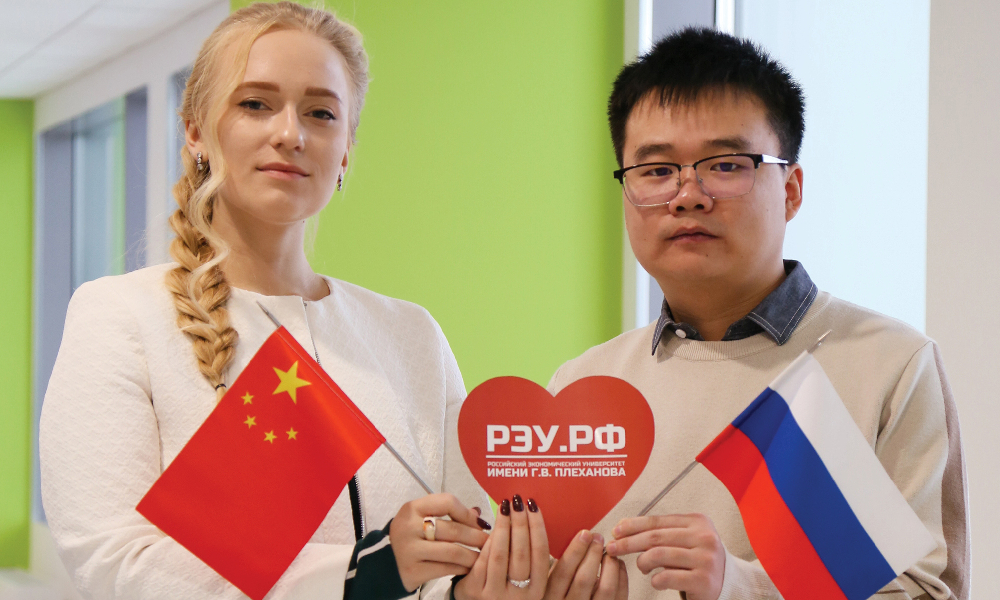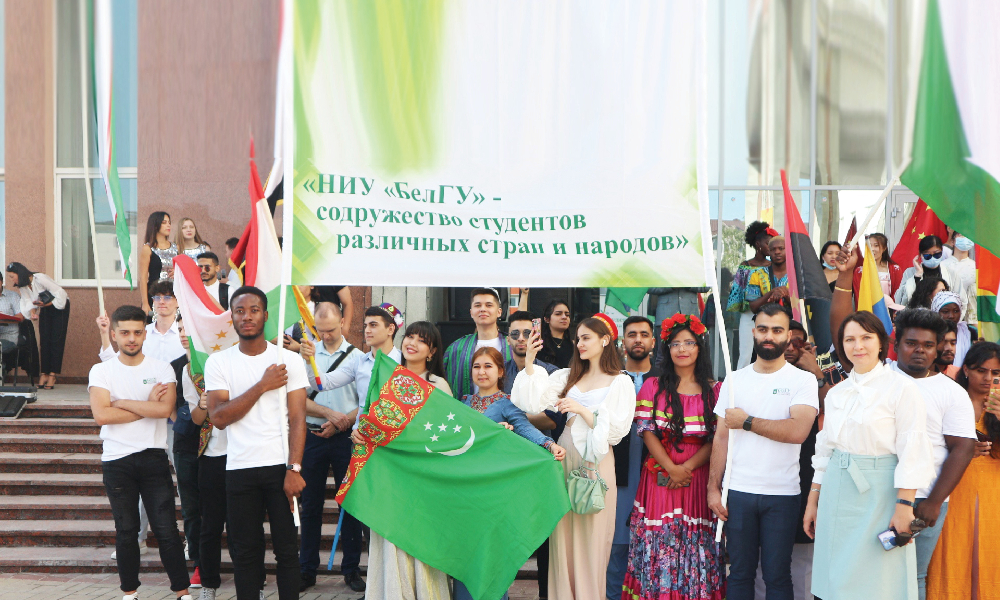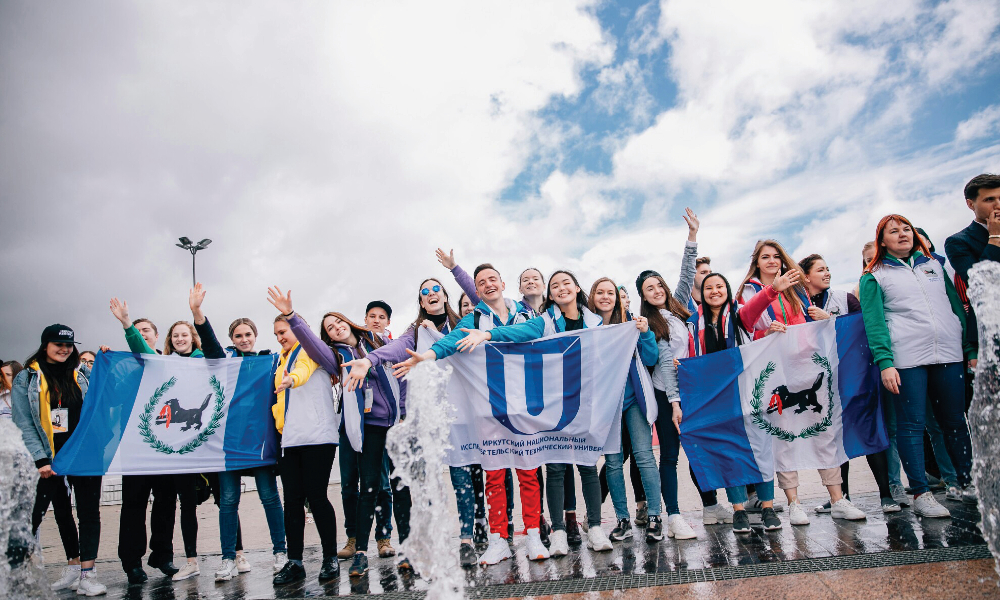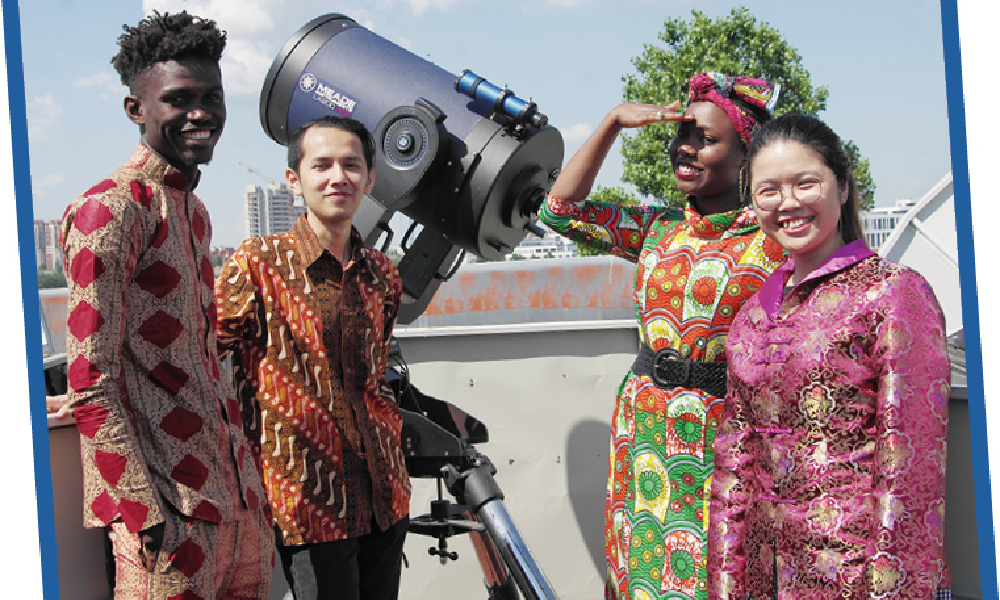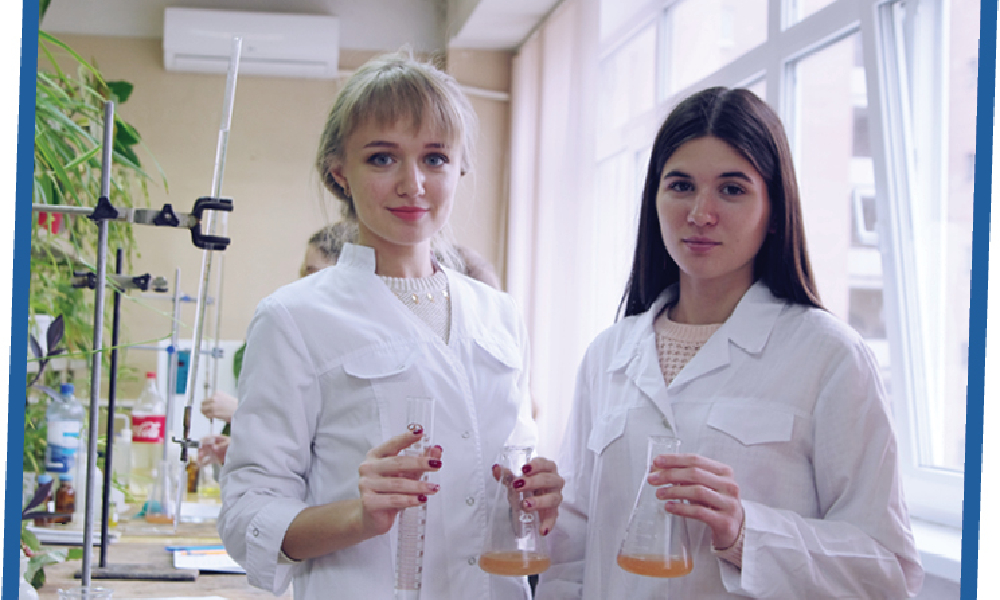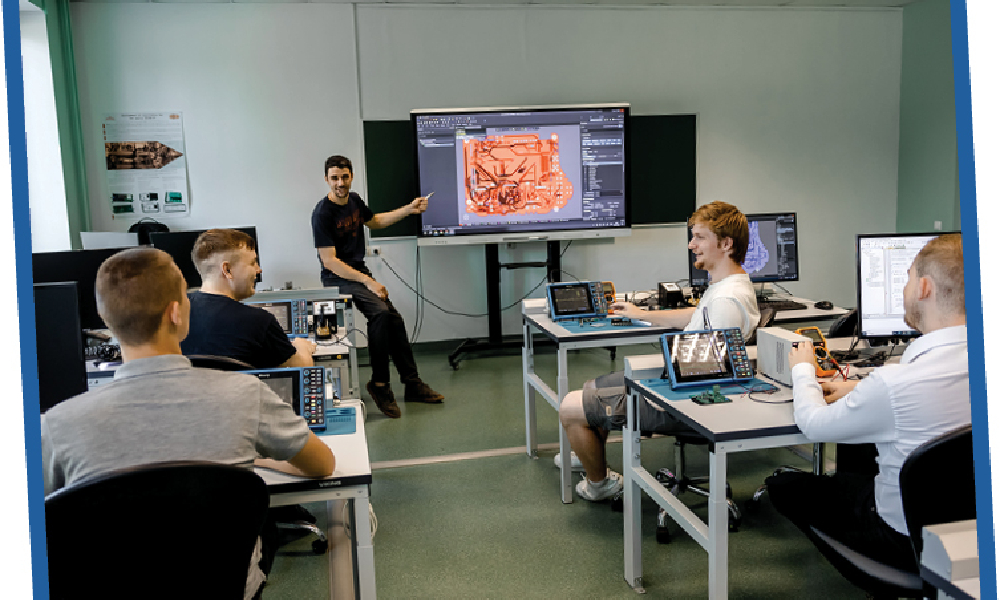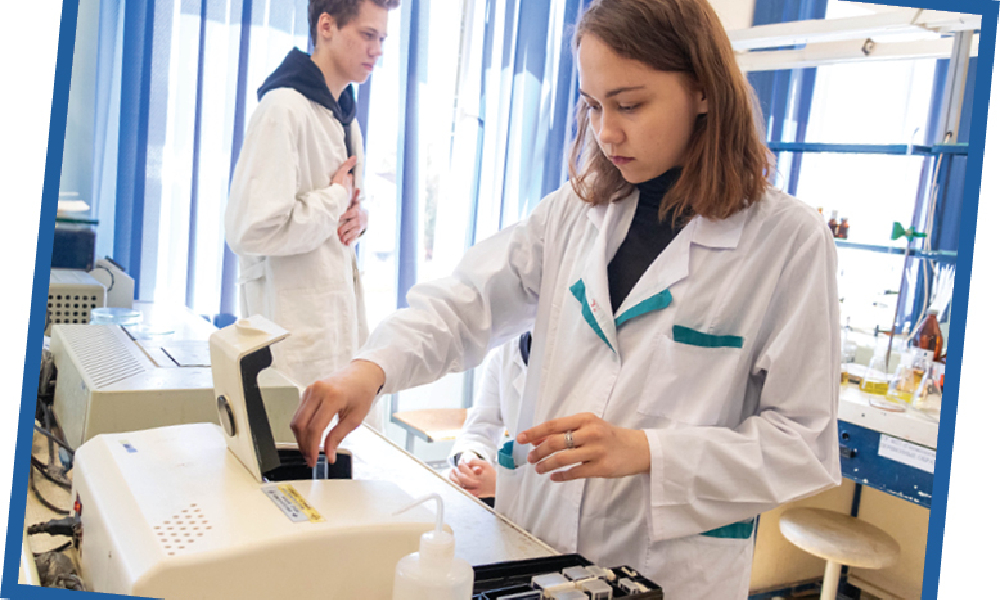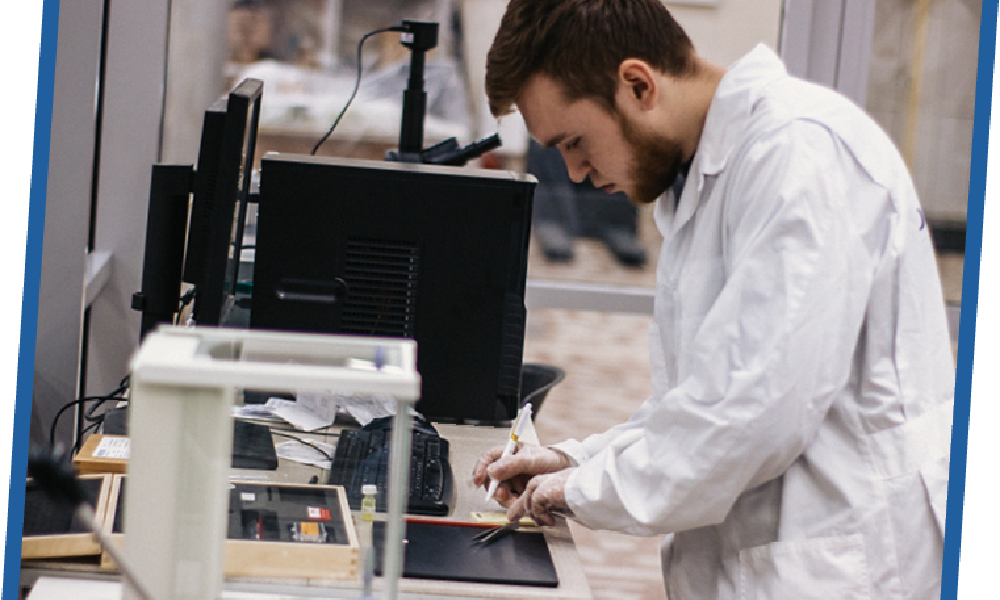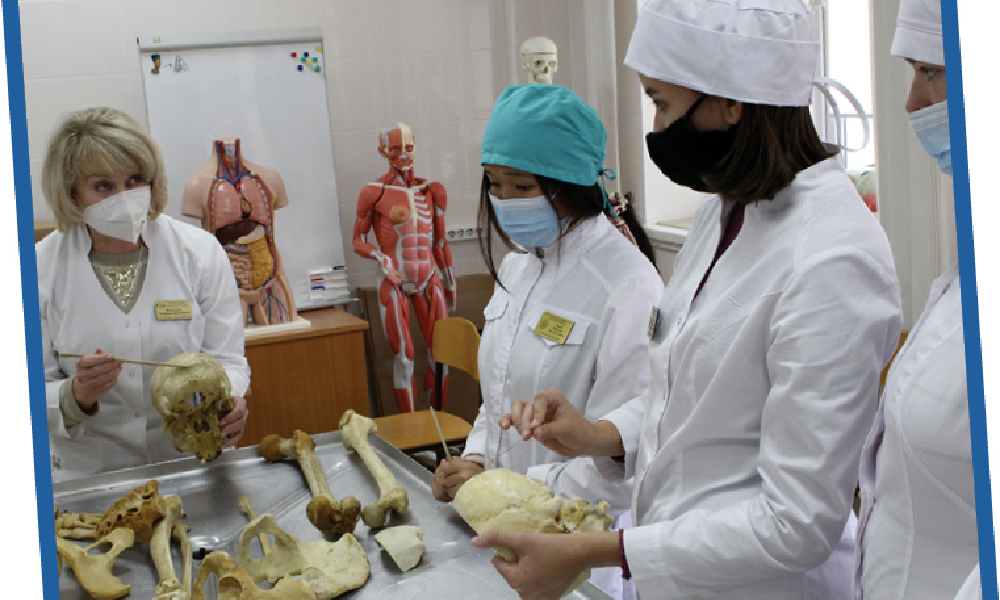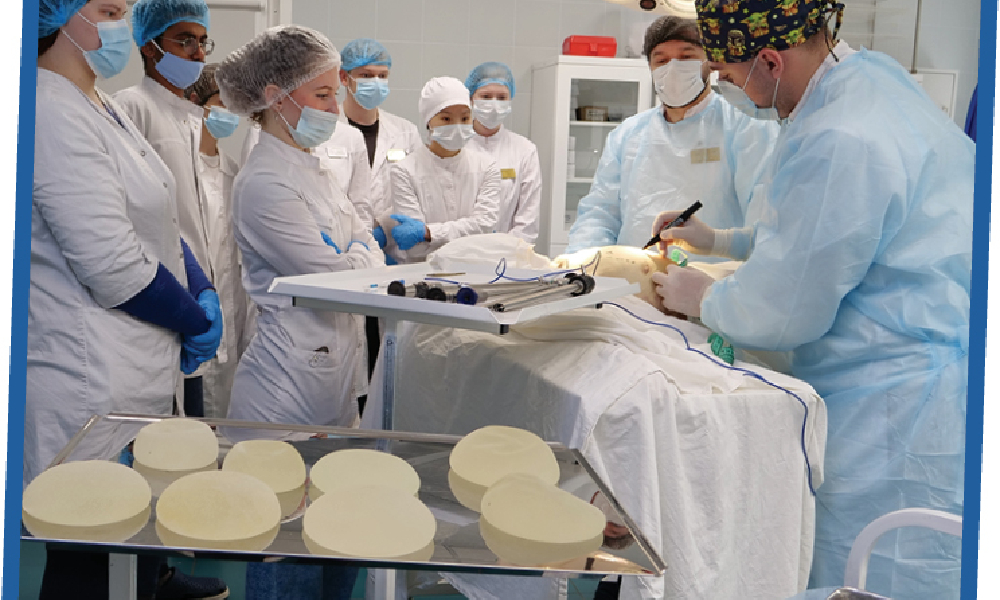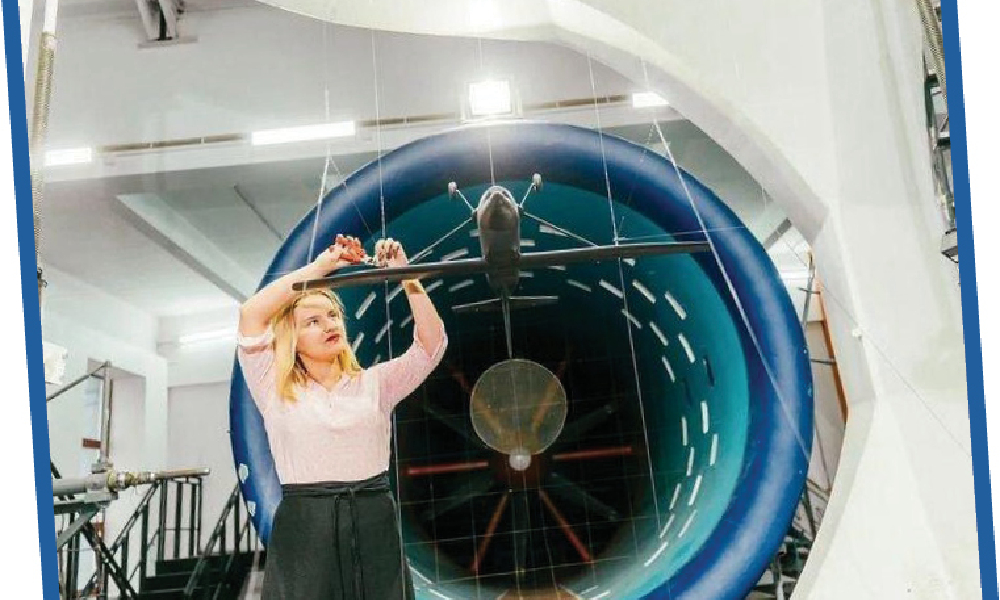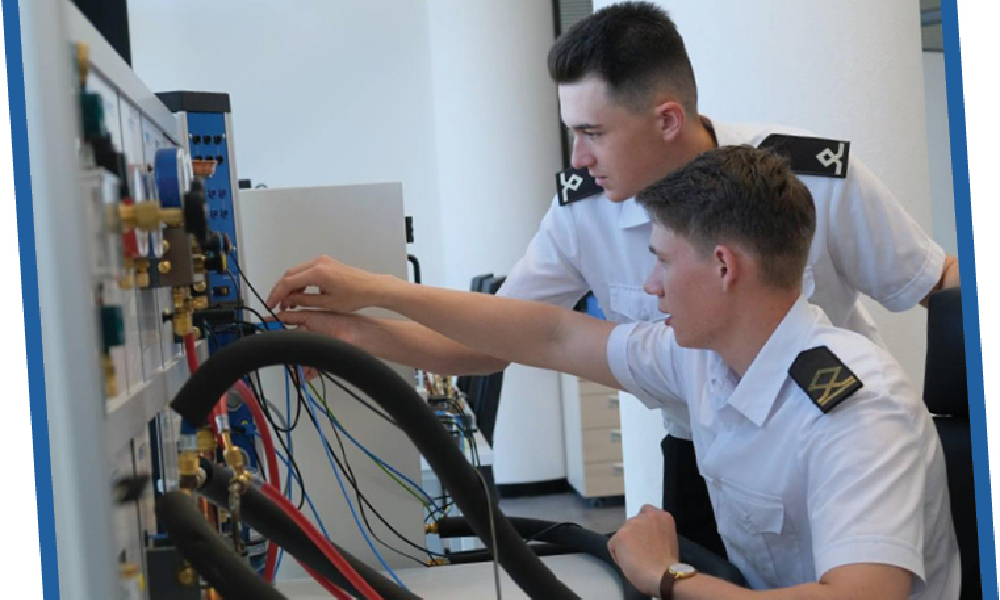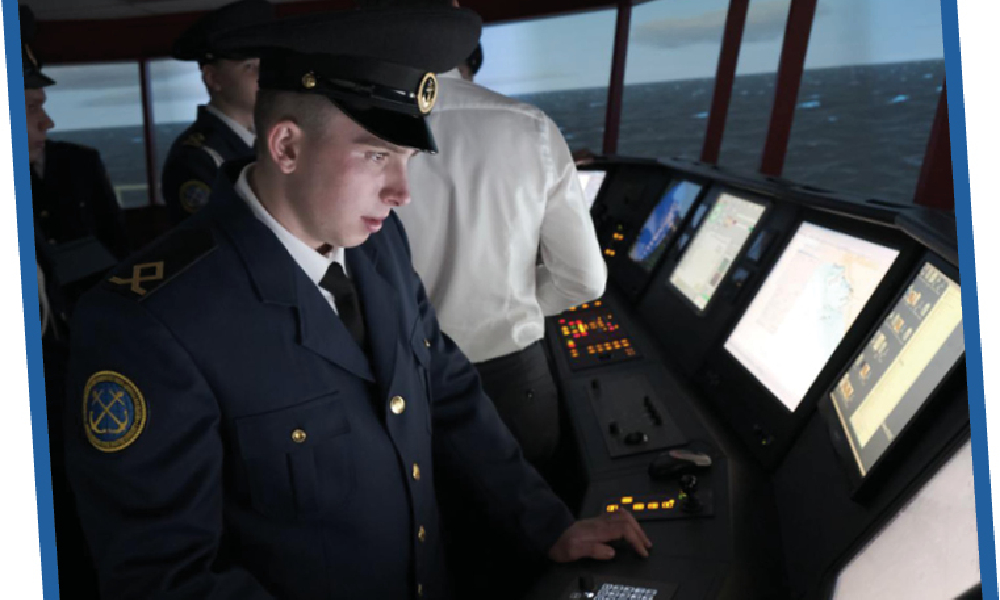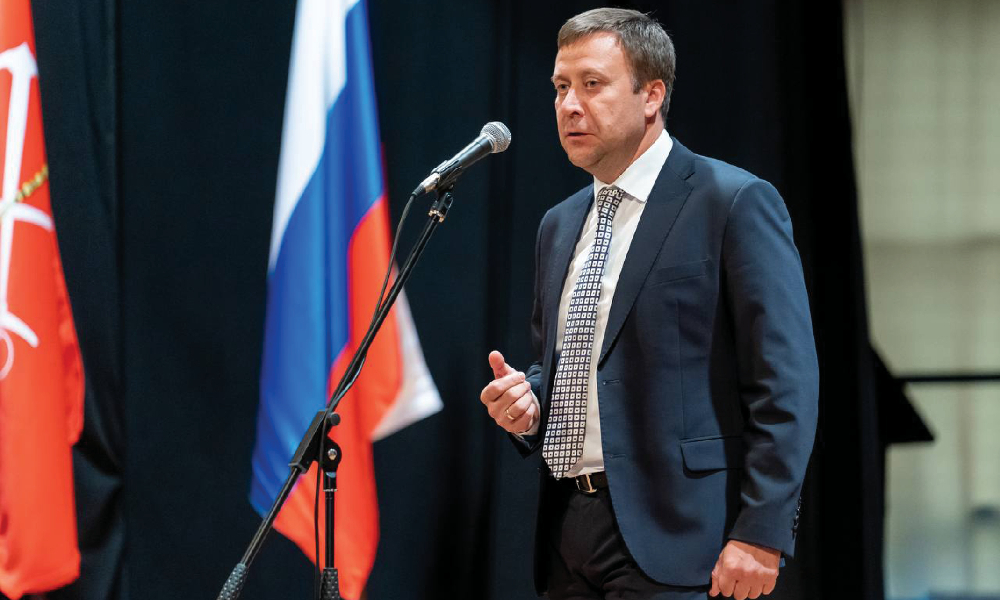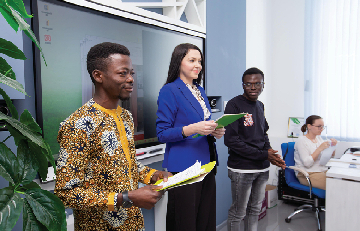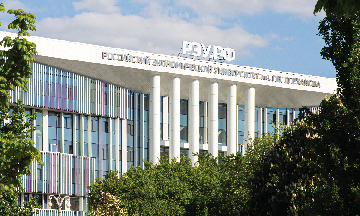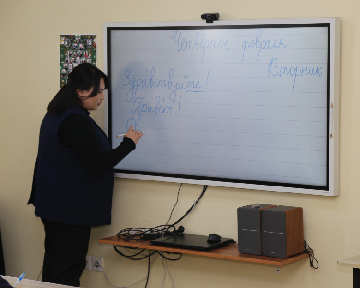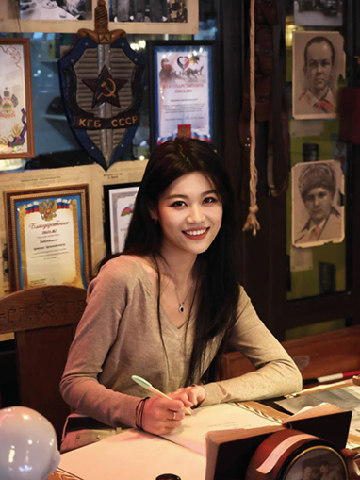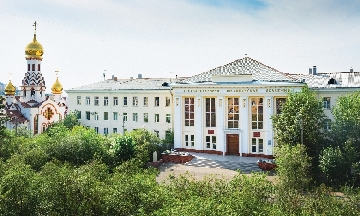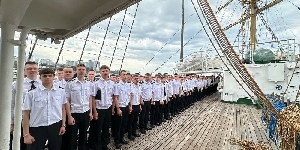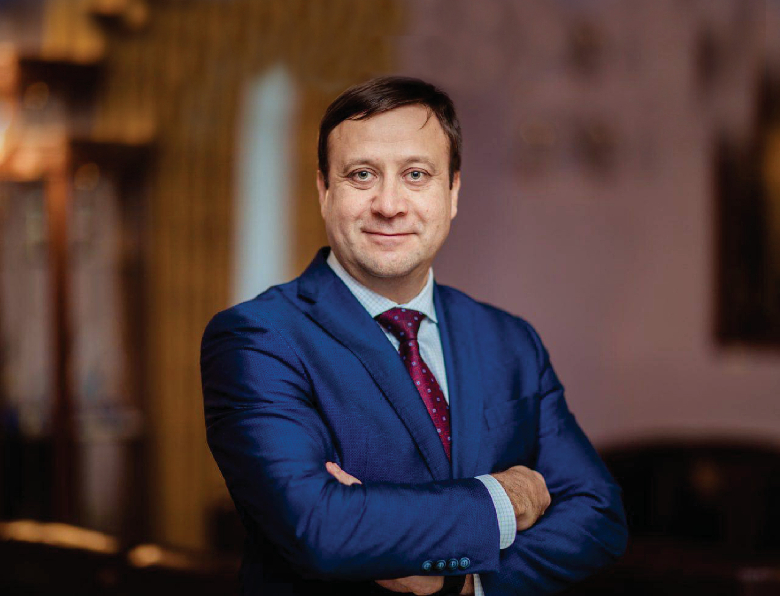
“Let's go!” is the most famous Russian exclamation: it is these words that were pronounced by “cosmonaut №1” Yuri Gagarin a second before the world’s first launch of man into space. And one of the most important Russian questions is “What is to Be Done?” That’s what was the title of one of the most popular Russian novels of the middle of the 19th century.
And today we will ask this question and other most important questions on your behalf, dear friends. We will ask the person who will be sure to help you find the right answers. Maybe, they will help you decide for yourself: “Study in Russia? Let’s Go!”
So, our interlocutor is Pavel Shevtsov, Deputy Head of Rossotrudnichestvo – the federal state agency of the Russian Federation, the main organizer and coordinator of Russia’s international cooperation in education, science, and culture; promotion of the Russian language worldwide; interaction with non-governmental organizations of compatriots abroad, etc.
The Agency has 87 representative offices –Russian centers for science and culture abroad unofficially called “Russian Houses” in 71 countries.
Pavel Anatolyevich Shevtsov, Deputy Head of Rossotrudnichestvo, a graduate of the Faculty of History of Moscow Pedagogical State University, Candidate of Political Sciences, Doctor of Economic Sciences, Full State Counsellor of the Russian Federation, has a letter of acknowledgement from the President of the Russian Federation.
Why go to Russia?
Before taking any important decision, every person starts with the question: “Why?” We will start with this question, too. Why go to study in Russia, at a Russian university? What undisputed benefits does Russian education offer young foreign citizens? What answer would you give to our readers, Pavel Anatolyevich?
– Young people from any country dream of a good future, dream of becoming successful in their lives. Education is a tool for building their desired future. That’s why the choice of education is so important and often fateful… So, answering your question about why young people should get a high education in Russia and what benefits it can offer them, I will answer that they will get a good tool for their future in Russia! Because, firstly, Russia offers high-quality education. Secondly, now Russia is communicating the world view, the values it is committed to. These are the values of close-knit family, patriotism, and mutual respect. And they have a great resonance in the world: we can see that there are a lot of people, sharing these values, in the countries of Southeast Asia, Latin America, and the African Continent and, as a matter of fact, in Europe. And, understanding intuitively that our world view is reasonable and sensible, they decide to go to Russia. So, here are two very important reasons for choosing Russia – education quality and shared life values. There is also a third factor – positive experience of senior compatriots who earned their degrees from Soviet or Russian universities and became heads of major companies, public figures and statespeople, diplomats in their countries...
The key factors when choosing Russia are education quality, shared life values, and positive experience of senior compatriots
Do Russian higher education institutions guarantee degrees that will be recognized in other countries?
– Some international applicants ask this question in connection with the information about Russia's quitting the so-called Bologna process. But international recognition of educational documents does not depend on the country’s participation in the Bologna agreement. It is worth reminding that today this agreement, which determines certain common approaches for higher education institutions, mainly includes European states. However, a great many countries are not part of the Bologna system, which by no means hampers international educational partnership. For example, young people from China, which is a country not included in the Bologna process, often come to Russia, and our students go to China without any document recognition issues.
Legal approaches and mechanisms of recognition of educational documents are well-known and are in common practice. In particular, one of the most common formats is mutual automatic recognition of educational documents between two states based on a special intergovernmental agreement. At the moment, Russia has such approved and effective agreements with more than 70 countries, and their list is expanded every year. Some of these agreements have been in effect ever since Soviet times, for example, with India or many states of the African continent.
Another common format of recognition of educational documents is recognition of degrees from particular foreign universities at the national level. For example, Russia’s list includes around 400 universities worldwide. Their degrees are automatically recognized in Russia, even if, for example, Russia and this country have no intergovernmental agreement on mutual recognition of educational documents. Such a system functions, for example, in Egypt, in many countries of the Middle East that automatically recognize degrees from some Russian universities.
Lastly, the third mechanism of recognition of educational documents is a so-called nostrification procedure that is always conducted, if, suppose, there is no special inter-governmental agreement between the countries. The rules of nostrification, i.e. procedures for recognition of international degrees in the country’s territory, are clearly stated in its national legislation. If young people intend to study in Russia, they can find out, first of all, whether our countries have an agreement on the mutual recognition of degrees, or whether there are any other above-mentioned recognition formats.
When it comes to informal recognition, in other words, to the popularity and reputation of Russian degrees among citizens of other countries, there has been a growing demand for it as Russian higher education is really one of the best in the world by price/quality ratio. Today, more than 380,000 international students are studying at Russian universities, and this is a great number. By 2030, we expect even more – up to 500,000!
"Today, more than 380,000 international students are studying at Russian universities, and this is a great number. By 2030, we expect even more – up to 500,000!"
Is Russia still an open country, which is safe for international students?
– Definitely, Russia was and still is one of the safest countries in the world. I can say it for sure because I travel all over Russia a lot and communicate with university rectors and governors of Russian regions a lot. All of them talk about a large inflow of international students from all over the world. You must admit that young people would hardly want to come here if they thought that it was not safe here.
However, some myths about Russia are very enduring, for example, about the winter all year round and bears in the streets… And what concepts of “faraway northern country” do modern young people from abroad have?
– The myths about bears in the streets are surely past and done with, and now are spoken out only as a joke. Modern young people are very forward-minded and can check any statement by going on the Internet. And they see that Moscow and Saint Petersburg are one of the world's most beautiful cities, that Russia is a huge country with the richest nature, culture, and traditions… Certainly, you can find everything on the Internet, including a lot of false information and fakes. But if people can exercise judgment in interpreting information, the Internet turns out to be a very good tool for searching for truth. So, all the stereotypes are debunked immediately.
How do modern young people from abroad perceive our country? With great interest, because they have a wide range of options for the most comfortable stay and study. Let me explain. The point is that Russia, besides the competitive higher education system, has several unique characteristics that, to my mind, make it much more attractive to prospective applicants. Firstly, it boasts a unique diversity of natural and climatic conditions. So, everybody who chooses to continue their education in Russia, can also choose a geographic region to their liking: someone will prefer the warm southern climate, and others dream of seeing a snowy winter for themselves. They will find all of this in our country. The second attractive feature is a religious factor: all the world religions are represented in Russia. For example, young people from Islamic countries can choose to study in those Russian regions that traditionally profess the Islamic faith – in Tatarstan or the republics in the Caucasus. There are Russian regions that profess Buddhism historically. Let alone the regions professing Christianity, which is the most common religion in Russia. It means that followers of different religions can find acceptable conditions in Russia. Lastly, even the vastness of the country has its advantages. For example, the universities located in the Russian Far East are logistically convenient for many young people from the countries of Southeast Asia, China, Vietnam. From here, students can fly to their home country more often, not only on their summer vacation, thus saving their time and money.
“Someone will prefer the warm southern climate, and others dream of seeing a snowy winter for themselves. They will find all of this in our country.”
The decision has been made. What is to be done?
There are 15 cities with a million-plus population, dozens of big cities, and hundreds of universities in Russia… Could you please name the first five mandatory steps to be taken by young people who have made an overriding decision to study in Russia…
– Firstly, young people should decide on the region of the Russian Federation they would like to live and study in, because, as we mentioned before, climatic, religious and logistic conditions are very diverse in different parts of the country. Choose the conditions that are acceptable to you.
Secondly, concern yourselves with details because they can turn out to be very important. For example, in Moscow, like any capital, living costs are somewhat higher than in other regions. Moreover, this is a huge megalopolis, and its specific features, like in any other city with a million-plus population, can turn out to be too comfortable for a person accustomed to a calmer atmosphere and smaller distances. In such instance, you can pay attention to relatively small city centers in Russia that have very good universities, too. Find out more information, not only about the region but also about the university you are choosing. For example, whether the campus and dormitory are located near one another or whether you will have to use city transport.
Find out all about service on student campus – where you can get your hair done, where you can have lunch, and how medical care is provided. How leisure time is organized, not only at the university, but also in the city you want to study in, because your student life will certainly not be limited to the “university-dormitory-library” route. Explore the city, its sights, services, and, naturally, safety issues. Generally speaking, the more details about your new place you will find out, the faster and more easily you will adapt when you come and begin studying.
The third important thing: if possible, possible, decide on your educational program to prepare for it at once. Suppose, revise your school knowledge of Mathematics or Physics once more if you have chosen an engineering field of study, or Chemistry and Biology if you have chosen a medical university. Because the level of teaching at Russian universities is very high, and it will be important for you to digest study material of the university program at once, starting from the first lectures. And to achieve that, you need solid background knowledge acquired at school.
Another thing: it is very important to decide on your language of instruction. Russian universities offer some English-taught programs, however, many programs are delivered in Russian. If the language of instruction in the field of study you have chosen is Russian, you must take a pre-university Russian language course at the preparatory faculty.
And, finally, the fifth must-do thing is try to find out in advance about the laws, rules and traditions of the country and region you have chosen, what you can do, what is not customary or is specifically prohibited so that you do not get into an awkward situation. So, here is a basic set of questions to be looked into before coming to Russia. If a young person lives in the country with the Rossotrudnichestvo center, the simple way is to visit this center, and our staff members will be pleased to tell them about the aspects of living and studying in Russia.
What skills will young people especially need to live and study in Russia successfully?
– First of all, desire and ability to study. It is this skill that is required by university education, a serious and responsible thing, the most important step in human life. Then, certainly, communication skills are important because young people, coming to Russia from abroad, will have to actively communicate with teachers, the dean’s office and their peers, to blend into a new environment comfortably and quickly. Another must-do thing is comply with the laws of Russia as a recipient country, social standards, and university community rules.
Russian House as an Advisor…
Today there are Russian Houses in almost 100 countries. How can they be useful for applicants and their parents and what above-mentioned skills can they help develop?
– – As a matter of fact, on the one hand, we expect that international students, coming to live and study in Russia, will respect and comply with Russian laws, regulations, and rules. But, for our part, we also must do our best to make young people from other countries feel comfortable in Russia, considering it their second home. And this is one of the tasks of Rossotrudnichestvo and its representative offices abroad. That is why we always meet with students before they leave, consult them and answer all their questions. The doors of Russian Houses are also open to those young foreign friends of ours, who have already decided to get a higher education in Russia, and to those who still hesitate, or who just wants to get better acquainted with our country, its history, culture, education, and language.
Rossotrudnichestvo is also a key operator responsible for selecting foreign citizens to study in state-funded places in Russia. What international applicants can be eligible for free education at Russian universities?
– Every year the Russian Government allocates 30,000 quota places for foreign citizens to study for free at Russian universities, and I can say that any foreign citizen can be eligible for free education in the Russian Federation. The first thing, which is important, is your desire. You can do everything else online in a convenient format. You do not need to go to Moscow or somewhere else to submit your documents. You do not even need to go to the representative office “Russian House” in your country.
On the same platform, you must upload a small list of documents that the system will require. Then you must pass the final tests and wait for the Russian Government decision to provide you with a quota place. Certainly, there are certain requirements for quota applicants and a certain threshold of required knowledge tested during exams. But if young people are interested and motivated to study in Russia, have solid background knowledge acquired at school, and are ready to study Russian, they can safely take the opportunity and compete for their quota place.
The doors of the Russian Houses are always open to international applicants
The photos have been provided by the partner universities of HED
What are the most popular majors among international applicants at Russian universities today?
– In different countries, the top most popular fields of study chosen by applicants at Russian universities can be somewhat different. But Russian higher medical education is traditionally in high demand. Technology and engineering fields of study are also popular – Russia has branded universities with a worldwide reputation in all these study areas. There is an increasing interest in agricultural and veterinary education, IT programs… I can add that Russian universities have recently created a lot of new interesting educational cases on training personnel for innovative economy. For example, for nuclear power engineering (Russia is one of the the world's educational leaders here), for other high-tech industries.
In general, Russian universities have the widest range of opportunities to train specialists for almost all sectors of the modern economy. So, international applicants with any educational needs will find an offer to their liking at Russian universities to get an education and a profession that they dream of and that will be in demand in their home country.
In general, Russian higher education institutions have the widest range of opportunities to train specialists for almost all sectors of the modern economy.
Is Russian language proficiency required to study in Russia? Do Russian Houses help young people start studying it while they are still in their home countries?
– Russia is a big home for people of more than a hundred nationalities, and you can hear many national languages spoken in different regions of the country. But the national language, language of nationwide communication is Russian. So, the first thing our Russian Houses help their visitors with is learning Russian. Such courses are in high demand, and a great many school students come to take language courses at Rossotrudnichestvo foreign centers. This is as it should be, because young people get a good cushion of time to master the language. And then the acquired language skill becomes an important competitive advantage when choosing Russian education, a great adapter and guarantor of proper acquisition of knowledge and mastering a future profession.
Moreover, at the Russian House you not only learn the language, get acquainted with Russian literature, traditions, and the education system. The Center specialists talk about the development of science and technology in Russia, about international youth projects where school students or young people from any country can participate. In other words, everyone can find something important to suit their interests.
“The first thing our Russian Houses help their visitors with is learning Russian.”
Study in Russia: 5 steps to making the right choice
- Decide on the region of Russia you would like to study and live in
- Concern yourselves with details: they can turn out to be very important!
- Decide on your educational program
- Decide on your language of instruction (Russian or English)
- Try to find out in advance about laws, rules and traditions of the country and region you have chosen
Our talk starts with the phrase “Let’s go!” – it is the title of another educational project of Rossotrudnichestvo that familiarizes young people from various countries with Russia’s scientific achievements. Are there any other important and interesting projects you would invite our readers to participate in?
– Yes, I have already said that Rossotrudnichestvo centers – Russian Houses implement a host of educational projects and events. For example, the Masters of the Russian Language project is a project to support young people, including international students and graduates of Russian universities, who come back from Russia and can teach Russian abroad. Or the New Generation program intended for young foreign citizens at the age of 25-35.The program provides the opportunity to go to Russia for two weeks to participate in major political and economic events, for example, in the annual St. Petersburg International Economic Forum. Another project of Rossotrudnichestvo is the program for young compatriots “Hello, Russia!” As part of the project for senior school students (10-11th grades), we offer very interesting, eventful tours to our country. All the information about Rossotrudnichestvo projects is available on the official website as well as on the websites of the Russian Houses abroad. By the way, I want to invite your readers to visit the pages of the Russian Houses on social media such as Instagram*, Facebook*, Telegram. We try to actively and promptly tell you about projects, news and announcements of the Russian Houses. I think that young people can find interesting and useful information for themselves, ask questions, and communicate.
Pavel Anatolyevich, what advice would you personally give to young people who have chosen to study in Russia?
– I would like to say to your readers that the world is changing rapidly. And we do not often know now what it will be in a year or two, and much less in the next decade. But the most important thing, which always was and is becoming especially valuable now, in a period of such rapid changes, is education. And I would like to assure your readers that Russia was and still is one of the world’s leading scientific and university powers, providing top-level higher education. That is why I encourage readers to monitor Russian universities and the new, modern and up-to-date educational programs they develop, and whose graduates will be competitive not only in the next few years but also in 20-30 years.
Also, I would certainly encourage you to study Russian because it is not only the language you will need if you decide to study in Russia. Russian is the language of the world cultural heritage: poetry, literature, music, science…
I would also encourage you to get as much first-hand information about Russia as possible. We are open to the world and always delighted to welcome international students coming to study in our country, and Russia is becoming part of their lives. And I want to wish them a happy life full of joy of new knowledge and self-fulfillment.
*Recognized as an extremist organization in the Russian Federation
“Why should young people get a higher education in Russia and what benefits does it offer them? My answer is that they will get a good tool for shaping their future in Russia!”
13.03.2025

